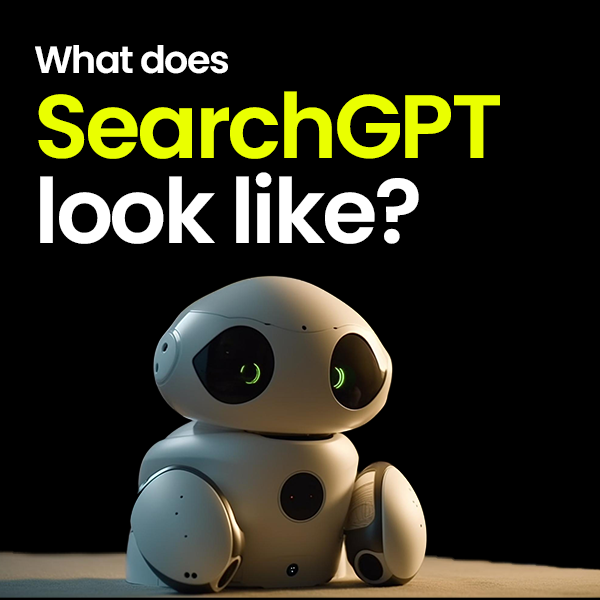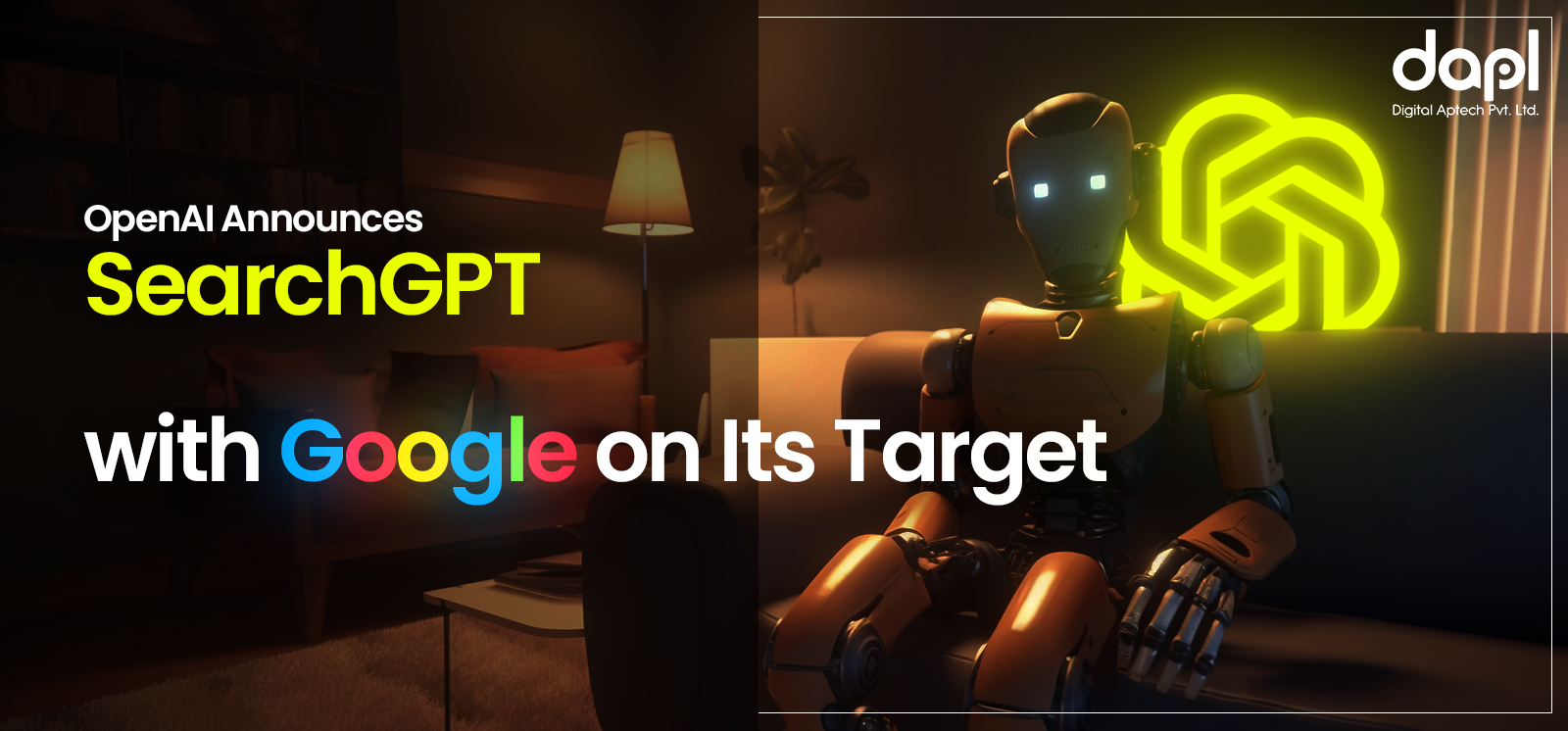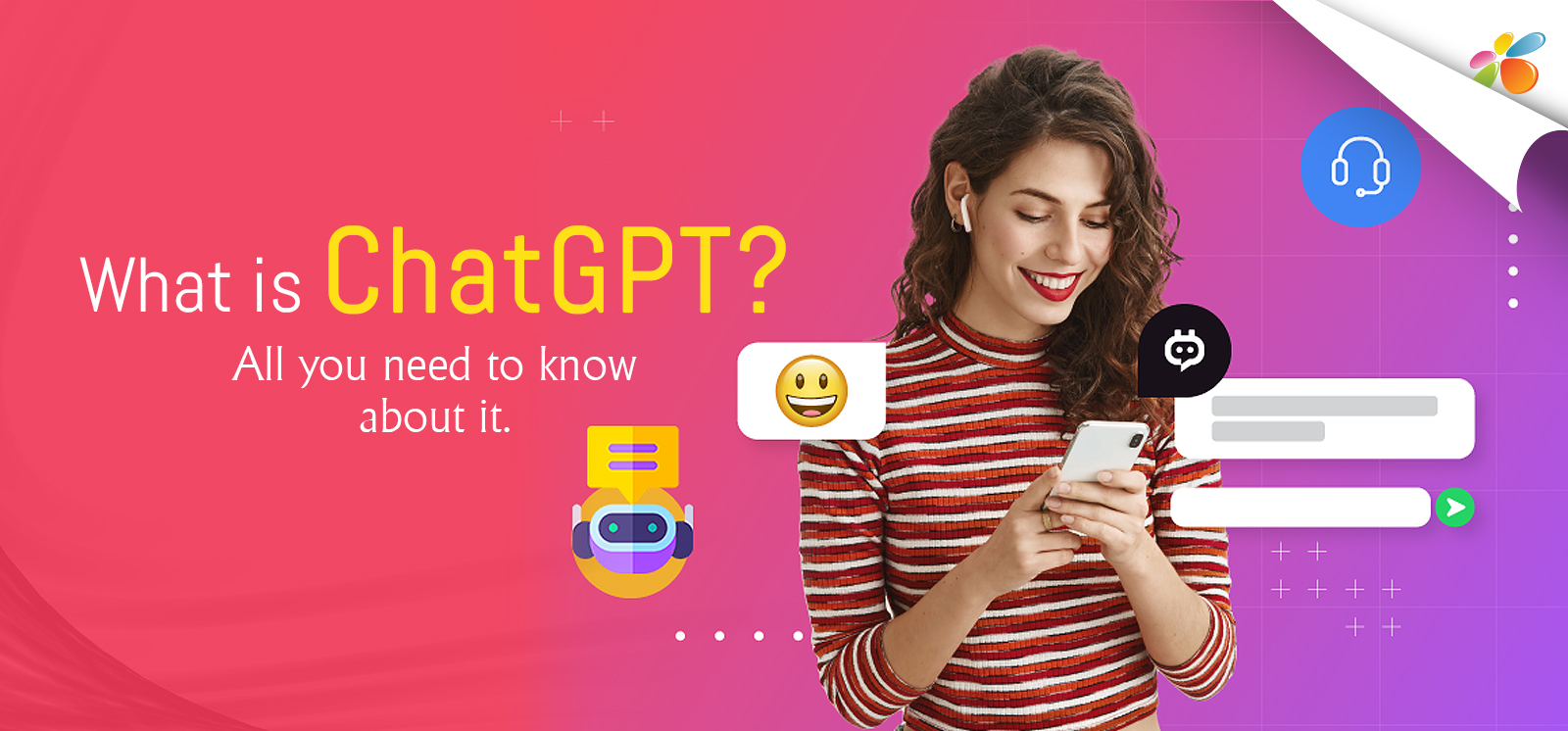OpenAI garnered much attention with ChatGPT. Now, the company is yet again in the spotlight for its new innovation: SearchGPT. With SearchGPT, OpenAI will be foraying into the search space, largely dominated by Google.
As of 2024, till now, Google holds a staggering 82% share of the search traffic worldwide. That might change in the near future as OpenAI implements generative AI to simplify web search.
Interested to know more? Let’s find out more here.
What is SearchGPT?
Powered by GPT-3.5, GPT-4.o and GPT-4, OpenAI’s SearchGPT incorporates generative AI to provide search solutions. The platform will offer real-time access to information from various web sources.
As per the official statement, SearchGPT will be a prototype before it is integrated with ChatGPT. For the time being, it will be available to limited users. OpenAI spokesperson Kayla Wood stated that it will be accessible to only 10,000 testers globally. It aims to make web search simplified, and conversational to help users find what they are looking for faster.
What does SearchGPT look like?

OpenAI officially shared a video to show what the platform would look like. The user interface is quite simple with a resemblance to the GPT-4.o browse mode. It has a search box ‘What are you searching for’. As you enter the query, the platform will display results with sources and relevant images.
Any additional search results will be visible in the sidebar.
How does SearchGPT work?
SearchGPT is designed to use AI models to pull information from the global web space. Generative AI will empower the platform to understand the search intent and search query more efficiently.
The results pulled up from the web will also include links to the sources. OpenAI claims that they have designed the platform to provide clear, fast, and relevant information to user search queries.
Is SearchGPT a direct threat to Google?

SearchGPT puts OpenAI in the direct line of threat for Google. However, experts suggest that impacting Google’s dominance in the web search landscape is still far-fetched. OpenAI with its AI-powered solutions might cause a dent in Google’s search traffic. Nonetheless, it will comfortably keep its monopoly intact.
To wrap up
Google previously tried its hands on incorporating AI with search as it rolled out AI Overview. The results were less than flattering due to inaccurate and absurd results and claims of killing traffic from source sites. Perplexity is another search platform using generative AI that landed in trouble for ripping off content from publishers without citation or attribution.
OpenAI learned from this drawback and aims to bypass such issues with the SearchGPT prototype. While SearchGPT seems to be a promising platform that could revolutionize the way we access info, only time will tell its impact.


